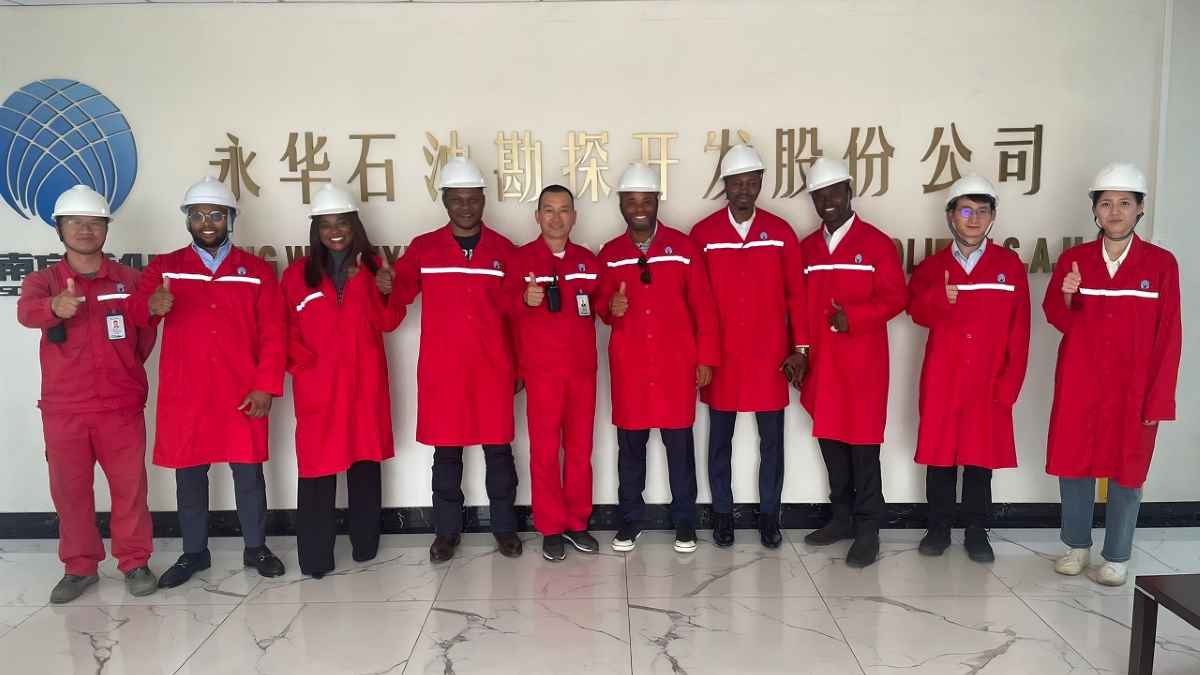The Chinese oil and gas company is developing a multi-faceted oil and gas project in the Republic of the Congo – a model which can be replicated in other resource-rich nations across the region
JOHANNESBURG, South Africa, June 22, 2024/APO Group/ —
The Republic of the Congo has a goal of increasing hydrocarbon production to 500,000 barrels per day (bpd) and projects such as Wing Wah Oil Company’s Banga Kayo development will serve as catalysts for meeting this objective. The project is a strong example for how integration and scalability can be utilized to not only monetize resources but maximize production beyond the lifecycle of initially-tied in blocks.
The African Energy Chamber (AEC) – the voice of the African energy sector – conducted a tour of Wing Wah’s project near Pointe Noire during a working visit to the country this week. A strong advocate for the development of oil and gas in Africa, the AEC believes that hydrocarbons are the solution for making energy poverty history by 2030.
Project’s such as Wing Wah’s in the Republic of the Congo are not only a testament to the role international partnerships play in developing African oil and gas resources but to the potential for large-scale, integrated developments across the continent. The Ministry of Hydrocarbons – led by Minister Bruno Jean-Richard Itoua – and the country’s NOC Société Nationale des Pétroles du Congo – led by Managing Director Maixent Raoul Ominga – have provided the much-needed support that companies such as Wing Wah need to develop innovative projects, and the AEC commends them for the progress made thus far.
Banga Kayo: An Innovative Oil & Gas Venture
The Banga Kayo conventional oilfield is a production permit operated by Wing Wah, which features approximately 250 wells that have been drilled to date. Currently, the field is producing 45,000 bpd and is nearing its peak production of 80,000 bpd. In addition to oil production, Wing Wah is implementing a phased expansion and development approach to monetize previously-flared gas resources. Over three phases, the project will progressively increase gas treatment and valorization capacity, producing LNG, butane and propane, primarily for the domestic market. Excess products will be exported regionally.
The project incorporates the development of three trains. The first has a capacity of one million cubic meters per day (mcm/d), while the second and third trains will have a capacity of two mcm/d each. The second and third trains are anticipated to come online by March 2025 and December 2025, respectively, and will bring the total capacity of the project to five mcm/b. In April 2024, Wing Wah signed an amended production sharing contract with the government for the Banga Kayo block, signaling the start of the expansion of the project.
Through gas-fired power generation, innovative water management and a long-term approach to production, the project is poised to unlock a wealth of benefits for the country
Integration: A Tool for Maximizing Efficiency and Scalability
Wing Wah’s project in the Republic of the Congo is underpinned by a focus on integration and scalability. The structure of the facilities has been planned in a way that prioritizes efficiency, reduces emissions and promotes scalability. Specifically, the facility enables Wing Wah to tap into stranded gas that would have otherwise been flared, thereby providing opportunities for monetization and the utilization of gas across the oil production cycle. Unlike traditional LNG infrastructure which faces challenges as blocks mature and feedstock declines, the scalable design of Wing Wah’s project creates the opportunity to maximize production – both at existing blocks and new concessions.
Additionally, each unit at the facility has its own power generation solution which are scalable in increments of 2 MW. Currently, 22 MW is installed, with generators utilizing gas from associated blocks. As production increases, so can power generation, thereby ensuring scalability and durability. Meanwhile, the water management system is also integrated into the project in a way that promotes environmentally-friendly operations. Water treatment is conducted on-site and distributed back into the ocean once treated.
As such, the facility provides a quintessence of oil and gas integration. The development approach features fast construction, fast commissioning and quick, efficient operations. Wing Wah are using state-of-the-art equipment and have an organized layout of the overall infrastructure and storage. This is expected to boost efficiency at the project site while ensuring the project plays an instrumental role in processing oil and gas for the long-term.
Prioritizing Local Community Development
In addition to project efficiency, the Banga Kayo development has been constructed in a way that takes into account the needs of local communities. All of the processing facilities have on-site accommodation, with senior management on-call to ensure a constant review of work. Currently, the project employs more than 3,000 people, the majority of whom are workforce Congolese. Meanwhile, excess power generated at the project site can be distributed to local communities, providing a clean and reliable source of power. Water management also takes into account regional demand, with surrounding communities benefiting from a clean source. This structure not only brings tangible benefits to local communities but reducing emissions across the project’s operational cycle.
“Wing Wah’s integrated project in the Republic of the Congo is a model that can and must be replicated in other oil and gas producing nations in Africa. The project’s focus on scalability ensures production is not limited to specific blocks, but rather, infrastructure can be easily tied into new concessions as exploration ramps up across the country. Through gas-fired power generation, innovative water management and a long-term approach to production, the project is poised to unlock a wealth of benefits for the country,” states NJ Ayuk, Executive Chairman of the AEC.
Distributed by APO Group on behalf of African Energy Chamber.
